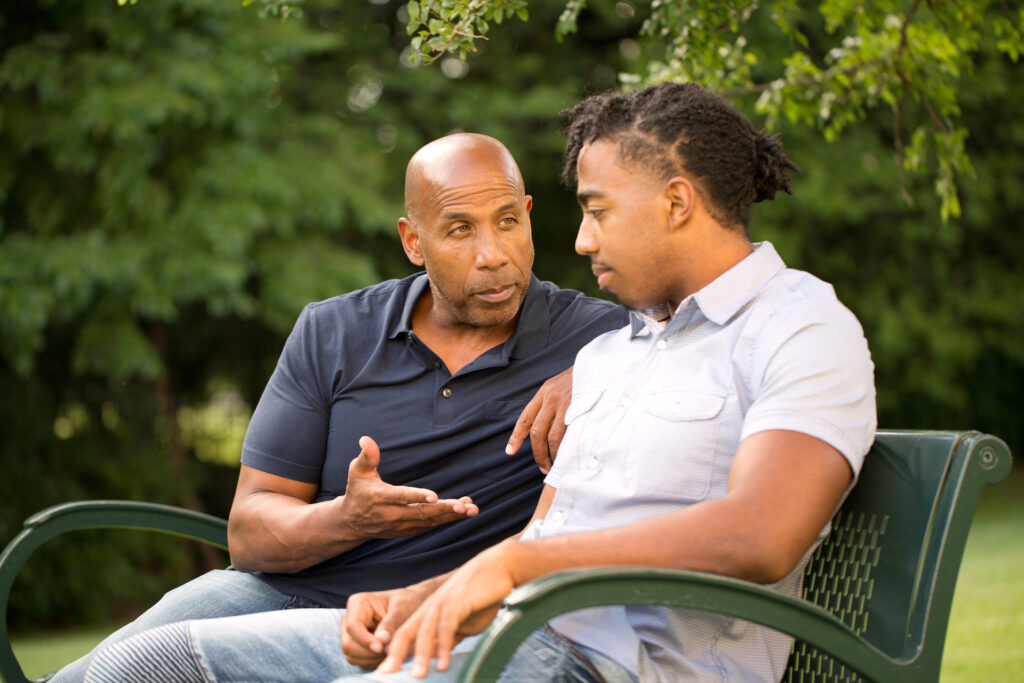Many parents try very hard to understand why their adult child struggles with addiction. The truth is, you might never fully understand your loved one, no matter how much you learn about substance use, addiction, and their unique struggles. The good news is the want and need to understand your loved one is not as important as learning how to connect with them.
In order to connect with someone, you must first be in touch with yourself and your healthy boundaries. From there, you can be with them and connect in a supportive way.
Let’s explore what boundaries are and look at the difference between communication and connection.
What is a Boundary?
Your boundaries define your “no”s. Boundaries are membranes that protect what’s vulnerable and sensitive in us. When we communicate a boundary to a loved one, we show them what’s okay for us and what is not.
Communicating a boundary is not a punishment or a threat, it is an expression of what matters to us even when our loved one becomes defensive or reactive after we share our boundary with them.
Choose a good moment of connection to express yourself. Try to find an opportunity when your loved one is capable and open to listening to what you have to say.

Communication vs Connection
As you talk with your loved one, don’t only use words but speak with your whole being. Let your body also communicate how you’re feeling and what you’re talking about.
Connecting with a loved one is so much more than communicating with them simply through language.
While you listen to them, pay attention to their facial expressions as well as body language. Take in their entire being, instead of focusing exclusively on their words.
Connect with them through your heart and don’t forget to honor the silence you share as well. Silence is not the absence of sound, but a deep meeting between individuals that can be felt as very palpable connectedness.
Find a Support Group for Yourself
Seeing our loved ones struggle is never easy. Find a support group. Connect with others going through similar experiences. Connect and learn with people in similar situations, learn about their lives outside of their struggles and create a sense of community.
Soon you’ll recognize how pervasive addiction actually is. Mental health challenges are much more common than we think, and each of us needs to find support to deal with life.

Your Own Healing and Compassion
Finding support and someone to listen to your stressors and worries in life is so important, and speaking with a counsellor can help. Develop a deeper connection with yourself and heal the invisible wounds you may not be aware of.
The best way to relate to someone who is suffering is to get in touch with our own pain.
Seeing and working through your own struggles opens and allows you to empathically connect with all struggling humans. This is how we develop compassion and perspective.
We can be compassionate in this way without losing ourselves in our loved one’s pain. It can be a difficult and challenging journey with no one-size-fits-all answer, but the desire to continue learning, connecting, and growing can help ease the bumps along the way.
At Sunshine Coast Health Centre and Georgia Strait Women’s Clinic, we provide addiction and mental health treatment to individuals from all walks of life. Our holistic approach recognizes the physical, psychological, social and spiritual aspects and empowers individuals to live their best life possible. If you or someone you know is struggling with substance use or mental health, give us a call today.



